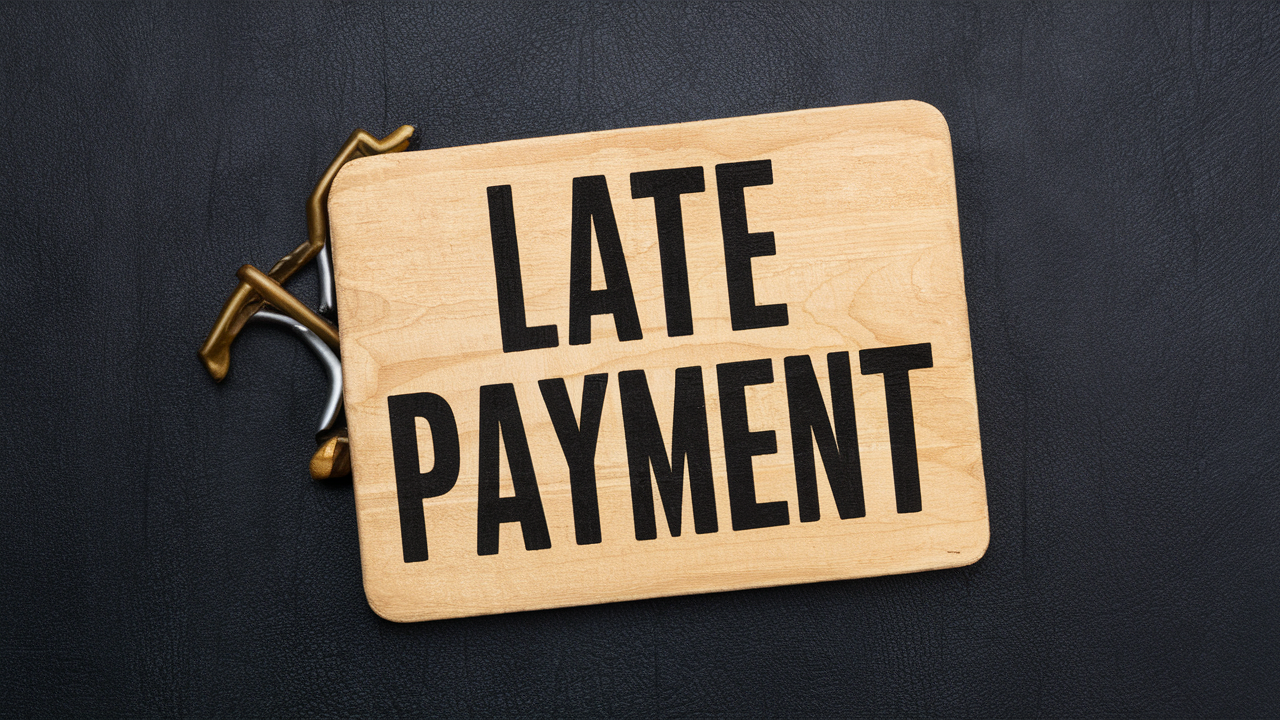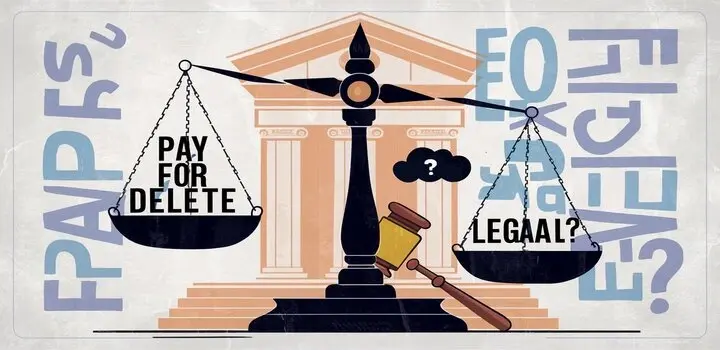-
Posted on: 16 Jul 2024

-
Facing a late payment on your credit report can feel daunting, but it's not the end of the world. This guide offers a comprehensive, step-by-step approach to understanding your options and effectively petitioning for the removal of late payment notations, empowering you to reclaim your financial health.
Understanding Late Payments on Your Credit Report
A late payment is a record of a bill that was not paid by its due date. Most lenders and creditors report payment history to the three major credit bureaus: Equifax, Experian, and TransUnion. When a payment is marked as late, it signifies to potential lenders that you may be a higher risk. The severity of the impact depends on how late the payment was (e.g., 30, 60, 90 days past due) and how frequently these instances occur. In 2025, credit scoring models are more sophisticated than ever, placing significant weight on consistent, on-time payments as a primary indicator of financial responsibility.
Why Late Payments Matter: The Impact on Your Credit Score
The impact of a late payment on your credit score can be substantial and long-lasting. Payment history is the most significant factor influencing your credit score, typically accounting for around 35% of the FICO score calculation. A single 30-day late payment can drop your score by dozens of points, and the damage intensifies with each subsequent missed payment or longer delinquency period. For instance, a 90-day late payment is far more damaging than a 30-day one. In 2025, lenders are keenly aware that a lower credit score often translates to higher interest rates on loans, mortgages, and credit cards, increased insurance premiums, and even difficulty securing rental housing or employment. This makes addressing and, if possible, removing late payment markers a crucial step in maintaining good financial standing.
Can Late Payments Actually Be Removed?
Yes, late payments can be removed from your credit report, but it's not guaranteed and often requires a proactive approach. The primary ways a late payment can be removed are:
- If it's an error: Credit bureaus and creditors are obligated to report accurate information. If the late payment was reported in error, it must be removed upon proper dispute.
- Through a goodwill gesture: Some creditors may agree to remove a late payment as a one-time courtesy if you have a strong history of on-time payments otherwise and can demonstrate extenuating circumstances.
- Through negotiation: In some rare cases, you might be able to negotiate a removal, especially if you are willing to make a settlement on a debt.
Effective Strategies to Get a Late Payment Removed
Successfully getting a late payment removed from your credit report involves a multi-pronged strategy. It requires diligence, patience, and a clear understanding of your rights and the processes involved. The following steps outline a comprehensive plan to tackle this common credit reporting issue.
Step 1: Obtain Your Credit Reports
The first and most critical step is to obtain copies of your credit reports from all three major credit bureaus: Equifax, Experian, and TransUnion. You are entitled to a free credit report from each bureau annually through AnnualCreditReport.com. It's advisable to stagger your requests throughout the year to monitor your credit continuously. For example, you might get one report every four months. Ensure you are obtaining reports directly from the official source to avoid fraudulent sites.
Step 2: Meticulously Review Your Credit Reports for Errors
Once you have your credit reports, dedicate time to a thorough review. Look for any inaccuracies, especially concerning the late payment you wish to remove. Common errors include:
- Incorrect account information (e.g., wrong balance, wrong account number).
- Accounts that do not belong to you.
- Payments marked as late when they were actually made on time.
- Duplicate entries of the same debt.
- Late payment reported before the actual due date.
Pay close attention to the dates the late payments were reported and compare them with your own payment records. Even minor discrepancies can be grounds for a dispute. In 2025, credit reporting agencies are under increased scrutiny to maintain accuracy, making a detailed review more important than ever.
Step 3: Gather Your Evidence and Documentation
Before you contact anyone, compile all relevant documentation to support your claim. This might include:
- Proof of payment: Bank statements, canceled checks, online payment confirmations, or credit card statements showing the payment was made on or before the due date.
- Correspondence: Any emails, letters, or notes from conversations with the creditor regarding the payment.
- Account statements: Statements from the creditor that show your payment history.
- Credit card statements: If the late payment is on a credit card, ensure your statements reflect timely payments.
- Circumstantial evidence: If you are claiming extenuating circumstances for a goodwill request, gather documentation such as medical bills, layoff notices, or disaster reports.
Having this evidence readily available will strengthen your position significantly, whether you are negotiating with the creditor or disputing with the bureaus.
Step 4: Contact the Creditor Directly
Your first point of contact should generally be the creditor or lender who reported the late payment. Sometimes, errors can be resolved quickly by speaking with their customer service or billing department. Be polite, professional, and clearly state the issue. If you believe the late payment was reported in error, present your evidence immediately. If the error is confirmed, ask them to correct it with the credit bureaus. If the payment was indeed late but you have a strong history, you can use this conversation to set the stage for a goodwill request.
Step 5: Write a Compelling Goodwill Letter
If the late payment was your fault, but you have an otherwise excellent credit history, a goodwill letter is your best bet for removal. A goodwill letter is a formal request to the creditor asking them to remove a late payment from your credit report as a gesture of goodwill. Here’s how to craft an effective one:
- Personalize it: Address the letter to a specific person or department if possible (e.g., Customer Service Manager, Credit Department).
- Be concise and clear: State the purpose of your letter upfront – requesting the removal of a specific late payment.
- Acknowledge responsibility: If the payment was indeed late, admit it. This shows maturity and honesty.
- Explain (briefly) the circumstances: If there were extenuating circumstances (e.g., illness, job loss, natural disaster), explain them concisely. Avoid making excuses.
- Highlight your positive history: Emphasize your long-standing relationship with the creditor and your consistent record of on-time payments.
- State your request clearly: Ask them to remove the late payment notation from your credit report.
- Be polite and professional: Maintain a respectful tone throughout the letter.
- Include account details: Provide your account number and any other identifying information.
- Send it via certified mail: This provides proof of delivery.
Example Snippet of a Goodwill Letter:
"Dear [Creditor Name/Department], I am writing to respectfully request the removal of a single 30-day late payment from my account, [Account Number], which was reported on [Date]. I have been a loyal customer for [Number] years, and this is the only instance of a late payment in my history with your company. Unfortunately, during that period, I experienced [brief, honest explanation of extenuating circumstance, e.g., a significant medical emergency that required my full attention and temporarily disrupted my financial management]. I have since resolved the situation and have resumed making all my payments on time. Given my otherwise perfect payment history and the isolated nature of this incident, I would be extremely grateful if you would consider removing this mark from my credit report as a gesture of goodwill. This would significantly help me in my efforts to maintain a strong credit profile."
While there's no guarantee, a well-written goodwill letter can be surprisingly effective, especially for long-term customers with otherwise impeccable credit histories. In 2025, many creditors are more receptive to such requests if they see value in retaining a loyal customer.
Step 6: Dispute Directly with the Credit Bureaus
If the creditor is unresponsive, refuses to remove the late payment, or if you believe the late payment was reported in error and the creditor won't correct it, your next step is to dispute the information directly with the credit bureaus (Equifax, Experian, and TransUnion). You can do this online, by mail, or by phone. The Fair Credit Reporting Act (FCRA) gives you the right to dispute inaccurate information.
How to Dispute:
- Online: Visit the dispute sections of each credit bureau's website. This is often the fastest method.
- By Mail: Send a dispute letter to the address provided by each credit bureau. Include copies of your supporting documentation.
- By Phone: Some bureaus offer phone dispute options, though this is less common for formal disputes.
When disputing, be specific about the inaccuracy. For a late payment, you might state:
- "This payment was made on time, as evidenced by the attached bank statement showing a payment of [Amount] on [Date]."
- "The late payment was reported before the due date, which is inaccurate."
- "This account is not mine."
You must dispute the same information with each bureau that lists it.
Understanding the Dispute Process
Once you file a dispute, the credit bureau has 30 days (or 45 days if you file the dispute within 30 days of receiving a new credit report) to investigate. During this time, they will contact the creditor (the furnisher of the information) to verify the accuracy of the disputed item. The creditor must then investigate and provide evidence to the credit bureau to support their reporting. If the creditor cannot verify the information or fails to respond within the timeframe, the credit bureau must remove the disputed item from your report.
Key points about the dispute process:
- Be patient: The process takes time.
- Be thorough: Provide all necessary documentation.
- Keep records: Document every interaction, letter sent, and date.
- Follow up: If you don't hear back within the allotted time, follow up with the credit bureau.
In 2025, the dispute resolution process is increasingly digitized, but the core requirements for investigation remain the same. The FCRA mandates that investigations be conducted diligently.
What Happens After a Dispute?
After the investigation, the credit bureau will send you an updated credit report reflecting the outcome of the dispute. If your dispute is successful, the late payment will be removed. If it is unsuccessful, the late payment will remain on your report, and the credit bureau will provide a reason for their decision. If you believe the outcome is still incorrect, you can file a secondary dispute, but it must include new evidence or highlight a new inaccuracy.
Table: Dispute Outcomes and Next Steps
Outcome Next Steps Successful Dispute: Late payment removed. Monitor your credit report to confirm removal. Continue practicing good credit habits. Your credit score should improve over time. Unsuccessful Dispute: Late payment remains. Review the reason provided. If you have new evidence or believe the investigation was flawed, consider filing a secondary dispute with new information. Alternatively, focus on building positive credit history to outweigh the negative mark. Alternative Solutions if Removal Fails
If you exhaust all avenues and the late payment remains on your credit report, it will eventually age off. Negative marks typically stay on your credit report for seven years from the date of the delinquency. While this can feel discouraging, there are still strategies to mitigate its impact:
- Focus on building positive credit: The most effective way to overcome a negative mark is to consistently demonstrate excellent credit behavior going forward. Make all future payments on time, keep credit utilization low, and avoid opening too many new accounts. Over time, positive information will outweigh the negative.
- Negotiate with future lenders: If you're applying for a loan or credit card and the late payment is still impacting your score, you might be able to negotiate better terms by explaining the situation and highlighting your improved credit habits since then.
- Consider a credit repair service (with caution): While many credit repair services make grand promises, some legitimate ones can help you navigate the dispute process and offer advice. Be sure to research any service thoroughly and understand their fees and methods. Avoid services that guarantee removal of accurate information.
- Wait for it to age off: This is the passive approach, but it is a guaranteed solution. The impact of a late payment diminishes over time, even if it remains on the report.
In 2025, the landscape of credit repair is evolving, with a greater emphasis on consumer education and direct engagement with creditors and bureaus. Understanding your rights under the FCRA is paramount.
Preventing Future Late Payments
The best strategy for dealing with late payments is to prevent them from happening in the first place. Here are some proven methods:
- Set up automatic payments: Most lenders offer automatic payment options. Ensure you have sufficient funds in your account to cover the payment.
- Create payment reminders: Use calendar alerts, apps, or even sticky notes to remind yourself of due dates.
- Budget effectively: Understand your income and expenses to ensure you can meet all your financial obligations.
- Prioritize bills: Identify which bills are most critical (e.g., mortgage, car payments) and ensure they are paid on time, even if other less critical bills are slightly delayed.
- Communicate with creditors: If you anticipate a problem making a payment, contact your creditor *before* the due date. They may be willing to offer a temporary payment arrangement or deferral.
- Review your billing statements: Regularly check your statements to ensure all payments are being applied correctly and that there are no unexpected charges.
- Consolidate or refinance debt: If you have multiple debts with varying due dates, consolidating them or refinancing could simplify your payment schedule and potentially lower interest rates, making payments more manageable.
Implementing these preventative measures will not only save you from the headache of late payments but also contribute significantly to building and maintaining a strong credit score for years to come.
Conclusion: Taking Control of Your Credit Future
Dealing with a late payment on your credit report can be stressful, but it is a manageable challenge. By understanding the impact of these notations, meticulously reviewing your credit reports for errors, and employing strategic approaches like goodwill letters and formal disputes, you can significantly increase your chances of getting inaccurate or isolated late payments removed. Remember, consistency is key; always strive to make payments on time and maintain open communication with your creditors. If removal isn't immediately possible, focus on building a robust history of positive credit behavior, as this will eventually overshadow older negative marks. Taking proactive steps today empowers you to secure a healthier financial future and achieve your long-term financial goals. Your credit health is a journey, and with the right knowledge and persistence, you can navigate its complexities effectively.











